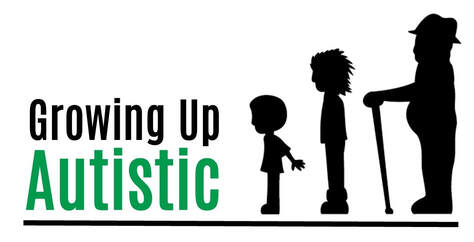
By Trevor Pacelli
It’s a challenge for anybody: finding an interest in a topic with no prior experience to. I mean, if you are not planning on ever becoming an engineer or accountant in the future, then where could you find any interest in math? While it can be a problem for many people, it is even more of a challenge for those with Autism. Because I am Autistic, my mind is much more geared toward very specific areas of interest, making it harder for me to leave those areas and open my mind to anything else. The same is true for a lot of students on the Autism spectrum who are required to take classes that are far out of their league of interest. As a result, their grades may suffer and they may be received poorly by their teachers. But I have found an easy solution to helping myself find interest in a subject that is juxtaposed from my subject of interest.
I found that I can relate to something I am normally not interested in by expanding on something I am interested in. An example is my current obsession for movies. I have watched an awful lot of movies the past couple of years that spanned a plethora of subject matters; one in particular was Schindler’s List. My love for movies already led me to watching this Holocaust drama simply for being a Spielberg movie the winner of several Oscars. That movie led me to register for a course here at ASU on German Media made during and after the Nazi Holocaust. If I were to take this class back in high school, I would have gone into it with lots of negative emotions and questioning why I even needed to be there. But now that I’ve seen the movie Schindler’s List, I have some way of relating to a difficult subject matter that most people would avoid, all because I was able to connect with it through something I was already passionate about.
In the class I learned that not only did the Jews in the concentration camps die in unfathomable numbers, but the Nazis also did things to their decaying bodies that were simply inhumane. They knitted their hair into clothing, burned their bones into fertilizer, and made their flesh into soap. And the documentary I watched that delivered this information was backed up with very graphic images of the starved Jewish bodies lying in enormous heaps pushed into a pit by a bulldozer. This was where my other love--photography--came in, I managed to distinguish the images being portrayed based on my personal knowledge of photo composition. There were several other subjects that I have been able to look deeper into based on my obsession with movies: Astronomy from Star Wars, the Titanic’s sinking from Titanic, Horticulture from Little Shop of Horrors (also a musical I did in high school), Oceanography from SpongeBob Squarepants (not a movie, but still an obsession), and the history of animation from Disney. If you are the parent of an Autistic child, or have Autism yourself, then this is something that I challenge you to do: take a look at whatever it is that you or the child passionately obsess over. It could be vehicles, cities, celebrities, farm animals, biology, or a certain TV show. But how do you know when it’s an obsession? If you asked my parents, they could tell you that I was absolutely obsessed over the show Blue’s Clues while in Kindergarten because it was the one thing that I based everything in my life around. I even had a Blue’s Clues themed birthday party complete with a handy-dandy notebook for all the party guests, a cake made to look like Blue’s paw print, and my own personal “Steve” shirt.
I am aware that an obsession like that is a bit more specific than movies, and harder to relate with other subjects, but I say it’s up to the challenge. One example for approaching this could be to talk to your child about an episode from the show that connects to a subject at school you want him to understand. For instance, if an episode had the characters teach how to solve simple math problems, then you could use that scenario to build up your child’s interest in the subject. Even if it’s not a TV show your child’s obsessed over, analyze how another obsession like science could relate to what he needs to learn about.
You would be very surprised as to how well your child catches on to an intangible subject when he can relate it with something he lives and breathes daily. I myself am surprised as to what I have been able to learn because of my past obsessions. But remember, the same thing could be said to anybody in any scenario: anything that you can relate to can in some way connect with what you cannot relate to. It’s all a matter of how deep you’re willing to delve.
1 Comment
Lauren Ellis
10/4/2014 10:05:17 am
This is a very interesting perspective on how to better succeed in studies that may not directly relate to your field. It is similar to memorizing by using association. Bottom line, when all is said and done, the fact still remains, "it doesn't matter how you get there, as long as you arrive."
Reply
Leave a Reply. |
Inspiration for Life with AutismThis blog has a variety of articles about people living life with autism, and topics and ideas that can help in the journey. Guest bloggers are welcome. Inspired by Trevor, a young adult film critic, photographer and college graduate on the autism spectrum. Categories
All
Archives
July 2024
|
Proudly powered by Weebly

 RSS Feed
RSS Feed